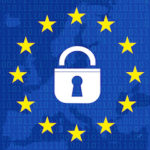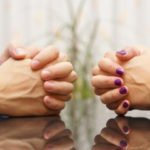Rule of law” is one of those phrases everyone uses, and when they do, they mean something much more general and vaguely understood than what the select cadre of professionals who actually work in that area mean. When you say “rule of law,” you may be talking about the legal system, or civilized society. But for thousands of people working in a variety of fields around the world, the rule of law is something both more specific and more sweeping — “the underlying framework of rules and rights that make prosperous and fair societies possible,” according to the World Justice Project (WJP). “…The rule of law helps people and communities thrive. Effective rule of law helps reduce corruption, improve public health, enhance education, lift people from poverty, and protect them from injustices and dangers large and small.”
It’s abstract and idealistic. And every other year, more or less, WJP tries to make it tangible and actionable at the World Justice Forum, a four-day conference that Nancy Ward, WJP’s chief engagement officer, describes as “a global gathering of practitioners from all different levels of experience in many different professional sectors who come together to design programs to strengthen the rule of law and to deepen their understanding about what the rule of law means.”
World Justice Forum IV was held at the World Forum convention center in The Hague, Netherlands, on July 8-11. Convene attended as part of a trip organized by NBTC Holland Marketing, and found a conference that’s very serious about doing things by the book.
INTO THE INCUBATORS
Everythingyou needed to know about the ambitions of the World Justice Forum and its attendees could be wrapped up in the purposeful hush that fell throughout the World Forum late on Tuesday afternoon, July 9. The conference had kicked off that morning — after an opening reception the night before — with a keynote panel on “Multidisciplinary Perspectives on Importance of the Rule of Law to Various Sectors,” moderated by Maria Livanos Cattaui, the former secretary-general of the International Chamber of Commerce. Panelists included U.S. Supreme Court Justice Anthony Kennedy and Thabo Makgoba, the Anglican Archbishop of Cape Town.
During welcoming remarks before the keynote panel, WJP Chairman William C. Hubbard, a Columbia, S.C.-based attorney who is president-elect of the American Bar Association, told attendees: “The success of this forum is dependent on you. We need your thoughts, your ideas, your energy to make this successful, so that we can work together to strengthen the rule of law worldwide…. [The forum] has the promise of being something that can really change the world and strengthen the rule of law in a way that benefits all of those around the world, including those who are the least among us.”
Hubbard was followed by William H. Neukom, WJP’s founder, president, and CEO, who dedicated World Justice Forum IV to Nelson Mandela, himself “initially the victim of the lack of rule of law during the apartheid regime,” and today “a beacon for all of us, is he not, of the future of the rule of law and its foundational importance to functional and fair communities around the world.” Translating those ideals into reality requires attention to process as well as vision, and at this conference, that meant spending a lot of time in Justice Incubator Working Sessions. “What is incubation of these practical programs?” Neukom said. “It’s finding ways to have folks communicate and collaborate in the design and to be prepared for the execution of these practical programs.”
The keynote panel was followed by two more general sessions — “The Rule of Law Around the World and Why It Matters: Findings From the WJP Rule of Law Index” and “Tunisian Transitional Process: Ingredients of Success and Fears of Failure” — and then, after lunch, five concurrent panel discussions on everything from “Access to Health: A Better Life for Women and Girls” to “Sport and the Rule of Law: Level Playing Fields.” And now, late in the day, it was time for the Justice Incubator groups. There were 13 of them, each meeting in a different room in the World Forum, each room quiet and serious, one or two dozen people or more discussing a specific challenge related to the rule of law and how it might be solved. “Access to Information” was directly across the hall from “Poverty and the Rule of Law.” Just up the way was “Post-Conflict Justice” and, past that, “Environmental Conflict Resolution” and “Formal and Informal Justice.”

Over the next three days, participants would meet with their Justice Incubator groups for a total of five hours. “They’ll come out of the back end of that with practical programs that they’ll report out to the full plenary [on Thursday afternoon],” said Ward, whom Convene talked to both a few weeks before World Justice Forum IV and in person during the conference, “and then we’ll go out after the forum and follow up with them to get those programs in place.”
Popular and well attended — at the end of our interview on site, Ward had to excuse herself to go find more chairs for “Poverty and the Rule of Law” — the Justice Incubator program is a signature component of the World Justice Forum, stemming directly from WJP’s mission to make the world a better place, and allowing the program to involve and engage a very diverse attendee population. “We do that by creating an opportunity for some of them to share their work,” Ward said, “and for others to think about how to become part of that movement and how to really, practically be a change agent. So, they get to actually get their hands dirty and do the work. That creates this unique energy that really provides the momentum in which this forum has grown and continues to be relevant and of service.”
‘ACTUALLY MAKING CHANGE HAPPEN’
World Justice Forum IV had a total of 550 attendees, representing 107 countries and 25 different professional fields, with a few main concentrations. “We invite people from government, civil society, academia, the media, and business,” Ward said. “These are practitioners. Primarily we’d like to call them change agents. That’s the way we go out and recruit and identify invitees. They’re people who are working on the ground and at the policy level. And each of those buckets, if you will, has different kinds of people in them. So, business we could think about in terms of professional-services firms, like lawyers and that kind of thing. Or we could think about it in terms of major international corporations, like Shell or Microsoft or Google or HP.”
Creating a program that speaks to everyone in those buckets isn’t easy. WJP’s solution is to keep things as concrete and hands-on as it can — not just with the Justice Incubator Working Sessions, but with the 15 concurrent panels offered during the conference. That approach both helps ground a potentially esoteric conversation and gives people in the audience a sense of how they might apply the speakers’ insights and experience to their own work. “We do have these topical panel sessions, and those speakers are actually invited to come and talk about the practical programs and the practical realities of what they’re implementing in whatever their chosen field or their chosen discipline is,” Ward said. “For instance, we have a panel on legal and economic empowerment of the poor. This is a topic that people talk about all the time and it’s very academic and sort of intellectual. You can wax on eloquently about how poor people are and how sad it is, but that’s not that interesting. What’s really interesting is to get the people who are innovating out there in the field, who are actually making change happen for these populations around the world.”
Indeed, that panel was held on Wednesday afternoon — its official name was “Economic and Legal Empowerment Through a Robust Rule of Law” — and was notable for its hard-edged approach to a potentially dry, nebulous topic. After moderator Zaza Namoradze, director of the Budapest office of the Open Society Justice Initiative, set up the discussion and introduced the panelists, one of them — Stephen Golub, an international-development consultant and lecturer at the University of California, Berkeley, School of Law — said, smiling: “Whenever I hear myself described as a scholar or professor, I kind of look around and say, ‘Who are you talking to?’ Because even though I teach part-time, it’s not mainly what I consider myself doing. I’m more of a practitioner.” Golub coined the term “legal empowerment,” which, he told attendees, is “about much more than law and lawyers. And I would argue that justice is often about more than that. What often brings about justice, legal empowerment, whatever term we want to use in which law and rights are used to help improve people’s control over their lives, the quality of their lives, their material circumstances — can involve many other skills and features.
“Community organizing in some places,” Golub said. “Integration of law and rights to help people … to take advantage of medical services that might be available to them even in a poor country but that otherwise they’re denied because they don’t know that health professionals are supposed to be on the job, that they’re not supposed to be charged or overcharged for certain medicines. Things along those lines. The use of social media is a growing phenomenon. Investigative journalism can contribute to justice and the rule of law and legal empowerment. So when we think about legal empowerment, it’s not just about law and lawyers.”
Golub’s co-panelists bore that out. Yasmin Batliwala, CEO of London-based Advocates for International Development (A4ID), reviewed three projects that A4ID has implemented: partnering with Sierra Leone’s Society for Democratic Initiatives to educate people about the country’s new Anti-Corruption Act following its 10-year civil war; training Rwandan government officials, on behalf of the United Nations Development Program, with regard to contract negotiations; and, with Global Witness, which works against corruption related to natural resources, making recommendations to overhaul the Democratic Republic of Congo’s mining code. Likewise, Faustina Pereira, director of human rights and legal aid services for BRAC (formerly the Bangladesh Rural Advancement Committee), discussed her organization’s work against poverty in Asia, Africa, and the Caribbean. “BRAC calls it the whole-person development,” Pereira said, “starting from the point of conception to birth to death; whether it is neonatal birth assistance to inoculation to safe birth to nutrition to adolescent development to preventing early child marriages to domestic violence and agricultural support, etc., etc., etc., right up to the point of death…. I think it’s fantastic to have this kind of canvas to work in, because it provides you not only the scale but the ability to also demonstrate impact.”
Even that morning’s keynote began with Song Sang-Hyun, president of the International Criminal Court (ICC), recounting his experiences as a 9-year-old boy hiding with his family in Seoul and scavenging for food during the Korean War — but Song took pains to connect his harrowing personal history to the ICC’s role in strengthening the international rule of law. “Ultimately, my work led to the International Criminal Court,” he said, “which brought me back to the terrible consequences of armed conflict and unrestrained brutality.”
A PEACEABLE KINGDOM
The Hague is the seat of Holland’s government and home to more than 150 international organizations, including the ICC, and the World Forum itself is surrounded by the headquarters for Europol, the International Criminal Tribunal for the Former Yugoslavia, and the Organisation for the Prohibition of Chemical Weapons. World Justice Forum IV’s presence in the City of Peace and Justice, as The Hague is known, was not an accident.
“The World Justice Forum and the World Justice Project sought a destination where they could get a platform,” David Bodor, strategic marketing officer with Den Haag Marketing, said over lunch at Worldhotel Bel Air The Hague on Tuesday. “Because they have a message, and that’s I think also why they chose the destination of The Hague, because we’re geared towards facilitating these types of events. It’s the international City of Peace and Justice, so we have knowledge institutions, networks, lobbying groups, and we can provide these type of events and these types of people a public stage.”
The World Justice Forum was held in Vienna in 2008 and 2009, and in Barcelona in 2011 — both veteran first-tier cities for international conferences. But WJP was looking for something more. “The reason why we’ve moved to The Hague for World Justice Forum IV is that The Hague is a global City of Peace and Justice,” Ward said, “so thematically we have a strong resonance and a strong community there that understands the work that we’re doing and is deeply engaged in these issues at every level, from the most localized social-justice advocates working in the Netherlands to many, many institutions who truly have a global scope and expertise, and are global leaders in these discussions around justice issues.”

From the beginning, The Hague was a key partner in the conference, as both a world capital and a city with its own particular knowledge economy. WJP began by reaching out to The Hague Institute for the Internationalisation of Law (HiiL), which describes itself as “an advisory and research institute for the justice sector,” and which facilitated introductions between WJP and various local organizations and institutions. Ivo Opstelten, Holland’s minister of security and justice, spoke at World Justice Forum IV’s opening reception, held at Worldhotel Bel Air on Monday night, and The Hague’s municipal government hosted a reception at city hall on Tuesday night, with remarks by Mayor Jozias van Aartsen.
Ward made a site visit to The Hague in September 2012 — “I had 27 meetings in three days,” she said — which both helped WJP get to know the destination and bolstered its credibility on the ground. “Because I went there in person and our executive director had been there on previous visits,” Ward said, “they understood that we were serious about our work and that the work that we were doing was supporting what that city is already working towards. So having that natural fit really helped a lot, and then amplifying that with personal visits and building of personal relationships really helped.”
That dynamic was in play on both sides of the relationship. “We for sure go out and seek these [types of] events, being a second-tier destination,” Bodor said. “We have to identify our USPs [unique selling propositions] and then actively pursue conferences and events in these sectors — peace, justice, and security on a global scale being one of the primary USPs…. We do that by creating strong partnerships: governmental, institutional, academic, industry.”

Following Ward’s site visit last fall, WJP built an eight-member local host committee — which included Astrid Bronswijk, head of The Hague’s department of international affairs, and Sam Muller, HiiL’s executive director — and set to working with the World Forum. The World Justice Forum has what Ward calls “a pretty demanding meeting schedule,” with the five concurrent sessions a day needing seating for at least 100 people each, and the 13 Justice Incubator rooms each needing a hollow-square set for 40 people. “[World Forum’s] staff is excellent, and they have been just really first-class in terms of their flexibility, in terms of their creativity, their problem-solving, and they’ve certainly treated this as its own event,” Ward said. “They’re not trying to do aboilerplate meeting. They really spent a lot of time trying to understand the style and philosophy behind our event.”
For the convention center, it didn’t hurt that the World Justice Forum was right in the facility’s wheelhouse. “It was very organized,” said Kristen Vosmer, the World Forum’s commercial manager, sitting over coffee in the building’s restaurant on Wednesday morning. “[Ward] knows exactly what she wants. Especially the cooperation with the city was important, because we are the City of Peace and Justice. This meeting has a huge impact for the city and is exactly what we want to host. [World Forum’s] slogan is ‘events that shape the world,’ and this meeting really fits that.”
The World Forum is compact yet spacious, with all of its rooms situated around a central staircase that rises up through the building’s four floors. For the World Justice Forum, the tables in the World Café, on the ground floor, were set with red votive candles that cast a low, warm light. On Tuesday afternoon and again on Wednesday morning, attendees were huddled around the café, drinking coffee and talking. Against one wall was a bulletin board with two large posters pinned to it, one outlining the WJP Rule of Law Index, the other showing Holland’s entry on the index — a silent backdrop to the conference’s social hub, suggesting a mission that operates at every level, from the global to the national to the local.
“This is the culmination of building a community that I care a lot about,” Ward said. “This is our raison d’être. It’s the reason why I go to work every day. It’s to create an environment where people can come together and share their energy and build their energy around creating more opportunity and equity for everyone.”



